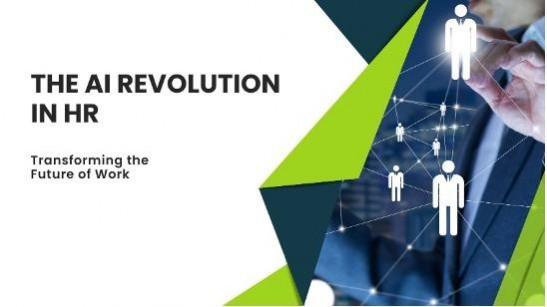
In the growing digital landscape, Harish Kumar Reddy Kommera explores the impact of artificial intelligence (AI) on human resources (HR) management in his latest work. This article delves into how AI is reshaping HR practices, enhancing efficiencies, and driving data-informed decision-making across various HR functions.
Recruitment and Hiring: Faster and Smarter
AI is transforming recruitment by streamlining talent searches and reducing time-to-hire. Automated resume screening quickly analyzes numerous applications to identify top candidates, while machine learning predicts potential based on past data and natural language processing goes beyond simple keyword matching. AI-driven tools also automate interview scheduling and reminders, cutting administrative tasks and freeing HR to focus on strategic activities. While AI boosts efficiency, human judgment remains essential to ensure fair and empathetic hiring.
Onboarding: Personalizing the New Hire Experience
AI has improved onboarding by delivering personalized training programs tailored to roles and learning preferences, creating a more adaptive experience. It customizes training based on job needs and recommends cultural integration activities. AI-powered virtual assistants enhance onboarding with 24/7 support, task automation, and better information access. This approach accelerates integration, boosts productivity, and increases retention, but balancing AI efficiency with human relationship-building is crucial for success.
Performance Management: Data-Driven and Continuous
AI is transforming performance management by replacing traditional annual reviews with real-time feedback systems that track productivity, analyze trends, and recommend personalized development plans. Its ability to predict performance issues and suggest proactive solutions gives organizations a strategic edge in talent management. By relying on objective data and detecting inconsistencies, AI helps reduce bias, making evaluations more consistent and fair while fostering a culture of continuous improvement. However, human interpretation and empathy remain essential for effectively managing individual growth.
Enhancing Employee Engagement Through Insights
AI provides valuable insights into employee engagement by using sentiment analysis to gauge morale, satisfaction, and productivity, identifying trends across data sources for proactive interventions. This continuous monitoring outperforms traditional annual surveys, enabling timely improvements to workplace culture. It also supports personalized employee development by identifying skill gaps and recommending tailored learning resources, enhancing engagement by aligning career growth with individual aspirations and organizational goals. However, meaningful human interaction remains essential for fostering strong relationships.
Automating Administrative Tasks: The Efficiency Advantage
AI is transforming routine HR tasks like payroll, benefits administration, and policy management by automating processes and enabling real-time management with minimal human intervention. Its ability to detect anomalies enhances accuracy and reduces errors, while automation in drafting and refining policies eases the administrative load. This shift allows HR teams to focus on strategic projects, though human oversight remains crucial for handling complex scenarios and ensuring regulatory compliance.
Proactive Workforce Planning with Predictive Analytics
AI-powered predictive analytics is transforming workforce planning by integrating data from diverse sources to forecast human capital needs, enabling organizations to model business scenarios, predict skill shortages, and proactively plan hiring and training. It also aids in managing talent retention through attrition prediction by identifying at-risk employees. This data-driven approach supports more strategic decision-making, ensuring organizations are prepared for changing business landscapes. However, combining AI insights with human expertise is essential for developing comprehensive workforce strategies.
Harish Kumar Reddy Kommera concludes that the future of HR lies in balancing AI-driven efficiency with human-centered management. While AI enhances HR by automating tasks, offering data-driven insights, and enabling strategic decision-making, it should augment rather than replace human capabilities. Organizations must ensure responsible AI use, address ethical concerns, and equip HR professionals to collaborate with AI. By combining AI's strengths with human expertise, companies can create a more efficient, fair, and engaging workplace, providing a roadmap for harnessing AI's potential while preserving the essential human touch.

















